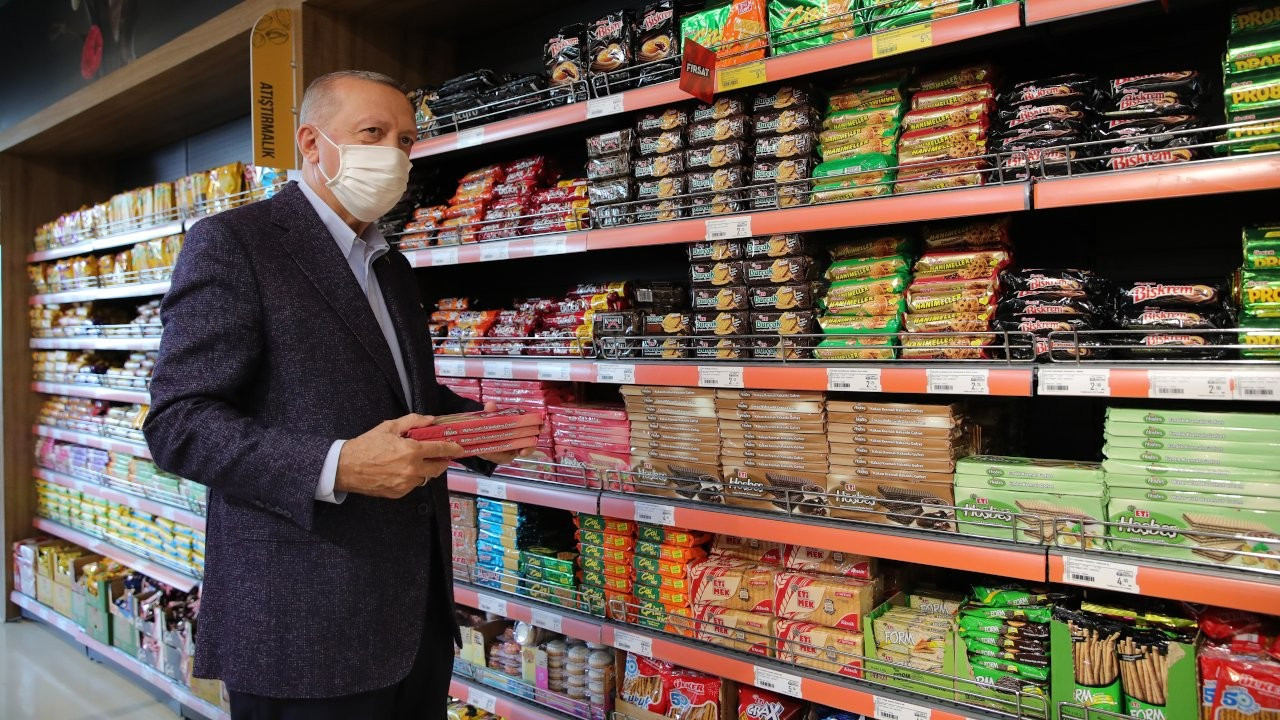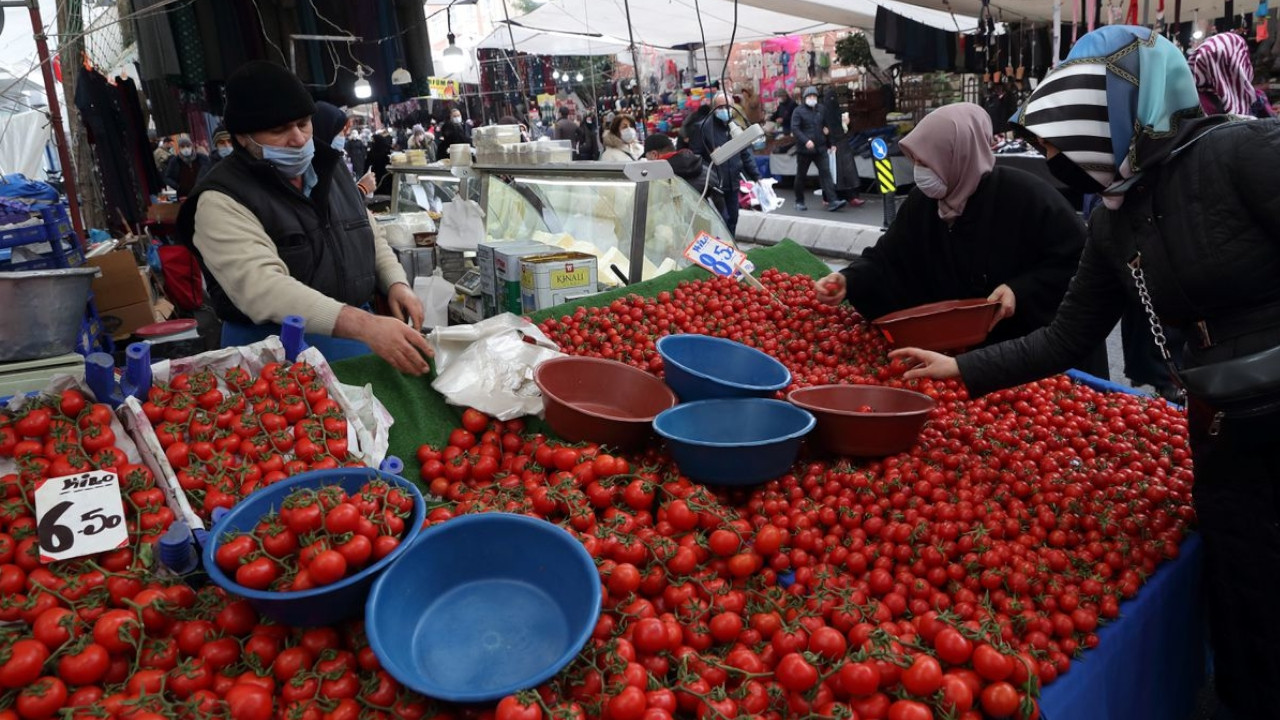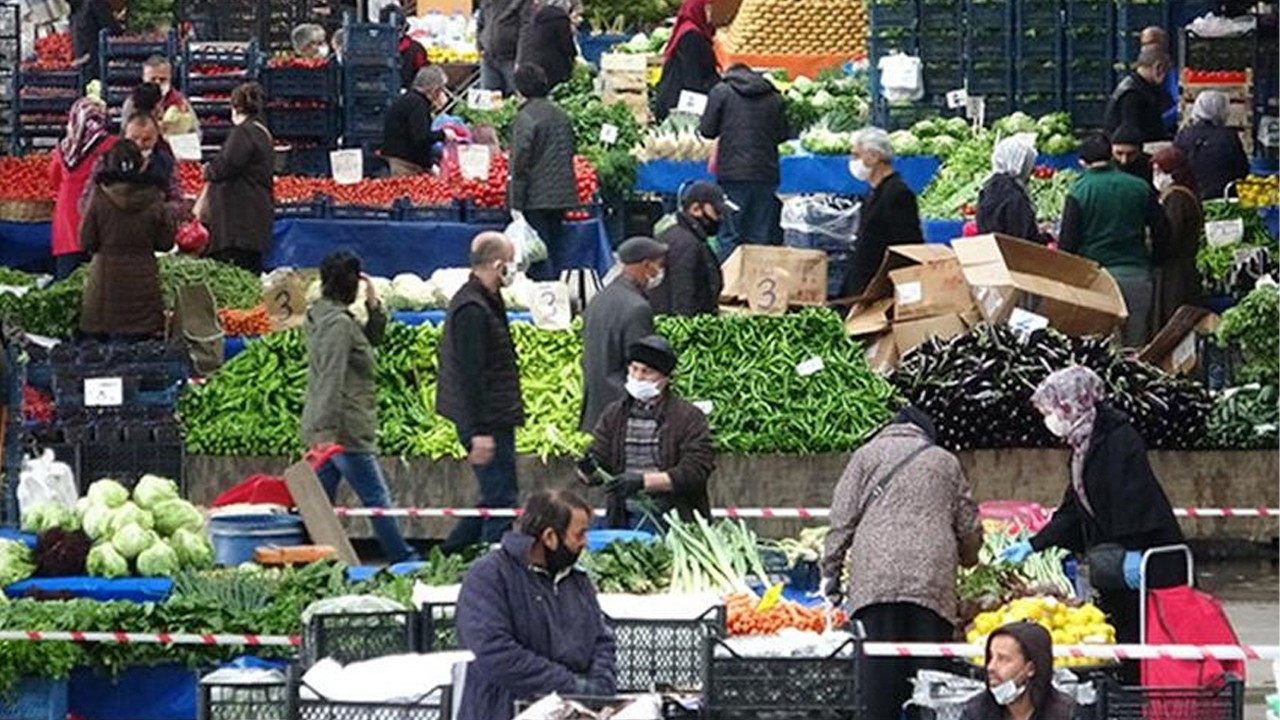Due to price rise, some in Turkey can only afford a single red pepper
The rise in food prices in Turkey is so extreme that some shoppers are now unable to afford fresh food altogether. According to shopkeepers at a bazaar in southeastern Turkey, some of their customers can only afford to buy a single pepper.
Vecdi Erbay / DUVAR
Shoppers in Turkey are increasingly unable to purchase fresh food at the country’s iconic bazaars, according to shopkeepers across Turkey. Food prices have risen so high that some local consumers are only able to buy a single pepper, they say. Not only are consumers going hungry, but shopkeepers are unable to sell their wares.
Food and consumer goods prices in Turkey have skyrocketed in recent years, reaching a fever pitch in 2021. According to data released on Oct. 4, the Consumer Price Index (CPI) in Turkey rose at a rate of 19.58 percent in September, up from 19.25 in August. In October, inflation climbed to 19.89% year-over-year, according to data released by the Turkish Statistical Institute (TÜİK). Customers are also affected by the rise in prices of fuel, electricity, and natural gas.
This has left many consumers in Turkey unable to buy food and other everyday goods.
Mahmut Güneş is a shopkeeper who has worked in the Diyarbakır market in southeastern Turkey for seven years. Technically, he was trained as a mechanical engineer. He graduated from school and took the Public Personnel Selection Exam (KPSS), but could not find work placement. After taking the exam several times, he gave up and turned to work in the bazaar.
Güneş says the rise in prices has affected his business. While Gazete Duvar spoke with him, several potential customers came and asked the price of green peppers. When he told them they were 10 Turkish Liras a kilogram, the customers walked away.
Each day, he says, prices rise, forcing him to raise his own prices.
“What I bought yesterday for four liras, today I buy for five liras. This is reflected in my prices, as well. People look and walk away, or they buy half a kilo when they were going to buy a full kilo because they can’t afford it,” he said.
Güneş further noted that because the market is located in the poorer district of Bağlar district, he is forced to keep his prices lower, thereby reducing his margin.
“People here are poor, so we reduce the price accordingly,” he said.
Another shopkeeper in the Diyarbakır bazaar, Mehmethan Burak, said that at the end of each day he and his family are lucky if they bring home 150 Turkish Liras. He works alongside his four nephews, all of whom, like him, have children to feed.
“It is very difficult for the citizens, but also for us,” Burak said.
He said that his customers are seeking the cheapest fruits and vegetables, and buying less than half of what they would before. Some people buy just one or two liras’ worth of goods.
“There are people who buy only one of these red peppers,” he said.
In large families, of which there are many in the area, it is hard to imagine how far a single pepper would really go.
When Gazete Duvar asked Burak why there were only a few people at the market, he said that it was noon and people were waiting for evening hours when prices would be cheaper.
“There is rain,” Burak said. “Plus, the prices will be a little lower in the evening at the bazaar. People are waiting for that.”

 Erdoğan's supermarket shopping fails to ease Turks' discontent with rising pricesEconomy
Erdoğan's supermarket shopping fails to ease Turks' discontent with rising pricesEconomy Turkish food inflation hits 28-month high in August, sees 29 percentEconomy
Turkish food inflation hits 28-month high in August, sees 29 percentEconomy ‘Tsunami in the kitchen,’ annual food price increase hits 35.7 percentEconomy
‘Tsunami in the kitchen,’ annual food price increase hits 35.7 percentEconomy